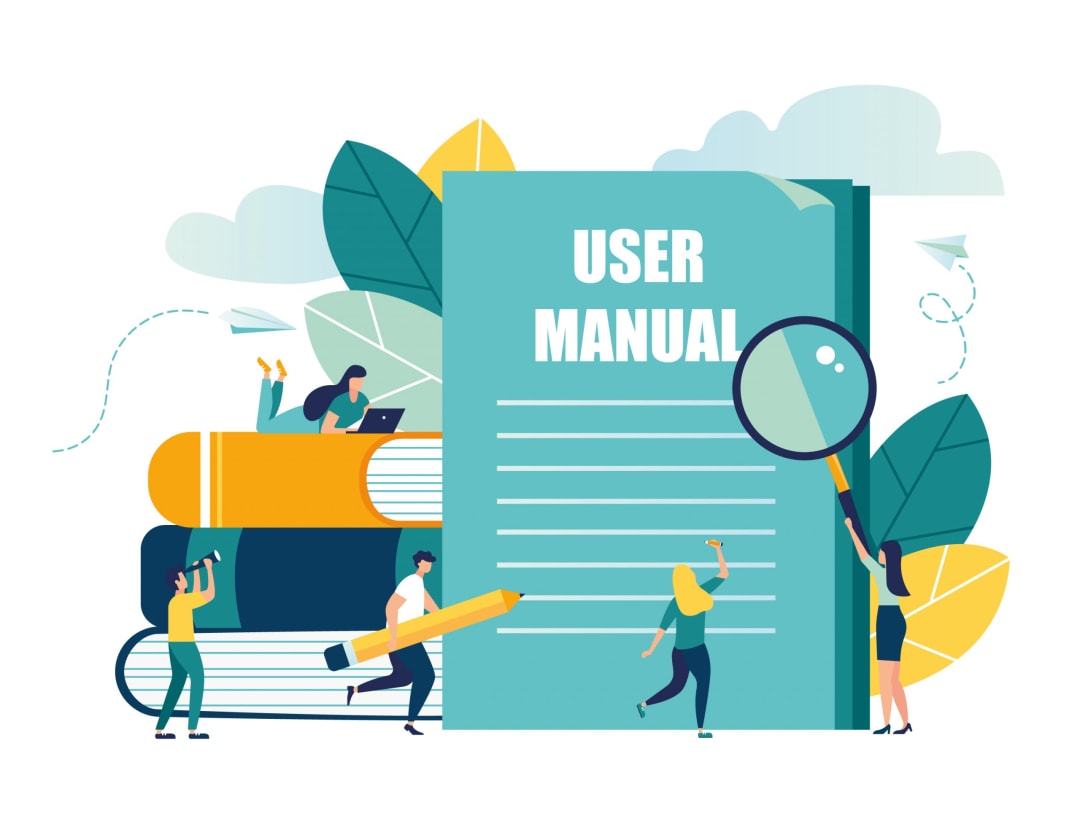Business Analyst vs Data Analyst: The Best Choice for 2021 was originally published on Springboard.
There is often confusion when it comes to the differences between business analysts and data analysts. Both are professionals within the field of data science, both delve into data in search of answers, and, at some organizations, the job titles are even used interchangeably. The key difference, then, is how the two types of analysts use data. Read on to learn what makes these professions distinct from one another.
Is There a Difference Between a Business Analyst and a Data Analyst?

In short, yes, there are a few fundamental differences between business analysts and data analysts. While there is overlap in their skills, such as knowledge of programming languages, experience with the complete data pipeline, and being able to perform statistical analysis on big data, they each target different facets of a business. Business analysts use data findings to help determine an organization’s business strategy, while data analysts focus on the nitty gritty of combing through data for insights.
Business Analyst vs Data Analyst
It helps to think of business analysts as big picture thinkers who focus on broader business operations and goals, and data analysts as the people who sift through troves of information looking for insights that can then be turned into actionable reports. Below you’ll find a more in-depth explanation of the roles and responsibilities that set business analysts and data analysts apart.
Business Analyst vs Data Analyst: Role and Responsibilities

The duties of business analysts and data analysts can vary depending on the industry and company. That said, there are a few consistent responsibilities shared across most organizations.
What Does a Business Analyst Do?
Business analysts are more concerned with the business implications of collected data and the actions that should result. Should the company invest more in one project over another? Should an organization pivot in its strategy? What broader trends should a business pay attention to and what should it ignore? Business analysts will leverage the work of data science teams to communicate an answer to stakeholders.
In order to be effective at this job, business analysts need to be skilled in data analysis and teasing out meaningful insights. But they also need to have a strong understanding of business processes and business needs, strong interpersonal skills so that they can make the case for what strategies an organization should pursue, and be effective project managers who can help organizations implement changes and recommendations.
What Does a Data Analyst Do?

Data analysts sift through data and create reports and visualizations to explain what insights the data is hiding. Within data science teams, they are often considered storytellers because they offer narrative and meaning to the numbers.
While presentation skills are important for data analysts to have given that they present their findings to different teams, they tend to work in silos compared to their business analyst counterparts. Their work is mostly focused on analyzing complex data sets and identifying trends in big data.
Business Analyst vs Data Analyst: Education and Requirements
Many organizations seek business and data analysts who hold at least a bachelor’s degree, but a degree of any kind is by no means necessary to work in these fields. What matters to hiring managers even more than the degree you hold is the set of skills you bring to the job.
What Are the Requirements To Become a Business Analyst?

Holding an undergraduate or graduate degree in computer science, statistics, business administration, economics, finance, or a related field can be helpful in getting a start as a business analyst. That said, bootcamps and self-instruction have also proven effective at equipping prospective business analysts with the skills they need to get a foot in the door.
Some of the common skill requirements of business analysts include:
- Data research and analysis
- A quantitative and analytical mindset
- Proven SAP skills (proficiency in SAP-R3/BI preferred)
- Strong Microsoft Excel, Word, and PowerPoint skills
- SQL proficiency
- Tableau experience
- Strong communication skills
- Project management
What Are the Requirements To Become a Data Analyst?

Data analysts are more numbers-oriented than business analysts. They typically have an undergraduate degree in a STEM (science, technology, engineering, math) category or with programming, computer modeling, machine learning, data visualization, or predictive analytics experience. An advanced degree is an added bonus but is not required.
Some of the common skills requirements of data analysts include:
- A blend of analytical skills, intellectual curiosity, and reporting acumen
- SQL/CQL, R, and Python experience
- Advanced Excel and Microsoft Office skills
- A strong understanding of data mining techniques
- Solid familiarity with emerging technologies, including: MapReduce, Spark, large-scale data frameworks, machine learning
- Ability to juggle multiple projects at once
- Strong written and verbal communication skills
- Familiarity with agile development methodology
Business Analyst vs Data Analyst: Salary
The salaries of business analysts and data analysts can vary greatly depending on the city, industry, and organization they work for. Below are the average base salaries of both professions in the United States.
What Does a Business Analyst Earn?

Business analysts in the United States have an average salary of around $78,000, according to Glassdoor, although this number is often higher depending on the analyst’s experience and whether they receive additional compensation in the form of bonuses or stock grants.
What Does a Data Analyst Earn?
Data analysts in the United States have an average salary of around $84,000, although this can increase exponentially if an analyst takes on a managerial role. Bonuses and stock grants can also lead to much higher earnings for data analysts.
Business Analyst vs Data Analyst: Career Paths
There is no set path to becoming a business analyst or data analyst, but below are some of the common ways people have landed roles as analysts.
What’s a Typical Career Path for a Business Analyst?
Many business analysts get their start in the industry by first obtaining a degree in business administration or a related field. But once they have their education in hand — whether it was gained through a college program or an online bootcamp — the next step is getting a foot in the door at an organization.
Business analysts often start out in entry-level roles such as quality assurance engineering, IT support, business administration, or in junior business analyst roles. These types of jobs offer prospective BAs a vantage point where they can gain exposure to different parts of a business, understand the needs of an organization, learn how business decisions are made, and see how data could be incorporated to help a company improve efficiencies.
BAs also commonly continue their training to stay up-to-date on the latest technologies and best practices, with many pursuing certifications from the International Institute of Business Analysis, or by brushing up on their technical skills through an online bootcamp.
What’s a Typical Career Path for a Data Analyst?

Similar to business analysts, many data analysts receive a bachelor’s degree in data science, computer science, statistics, applied mathematics, or a related field. But their paths into the industry can vary greatly.
Some data analysts get their start with internships or entry-level roles such as junior data analyst. Others make lateral moves by first working as financial analysts, systems administrators or quality assurance engineers — roles that give them an opportunity to work with data, participate in data-oriented projects, and build a portfolio.
Business Analyst vs. Data Analyst: Which Is Best for You?
Both business and data analysis are well suited to critical and analytical thinkers who like to delve into data and problem-solve. But depending on your interests, you might be better suited to one role over another.
Consider Being a Business Analyst if…
If you’re a big picture thinker and a strong communicator, you might be well suited to a career as a business analyst. BAs can see the forest for the trees. They delve into data in search of improvements and solutions to the overall business, which means they have to be business-minded, they need to be able to understand the relationship between data and business strategy, and it’s important that they can communicate their findings to stakeholders who might not come from technical backgrounds.
Consider Being a Data Analyst if…
If you prefer to get into the weeds of data — being given a question or hypothesis and digging into big data in search of answers — then a career as a data analyst might be for you. Data analysts spend a lot of time working with math and statistics. They make difficult-to-understand numbers and stats digestible and actionable within an organization and are able to clearly present their findings to other teams.
Springboard offers a comprehensive data analytics bootcamp. Our data analytics curriculum goes beyond just technical skills to focus on areas where employers find the biggest gaps: strategic thinking, problem-solving, and communication. Watch videos from Microsoft. Learn insights from McKinsey experts. Tackle case studies from Harvard Business School. No other data analytics bootcamp does this. You’ll graduate with an analytical mindset. That’s an edge not just for your job search, but throughout your career.
Check out Springboard’s Data Analytics Career Track to see if you qualify.
The post Business Analyst vs Data Analyst: The Best Choice for 2021 appeared first on Springboard Blog.


